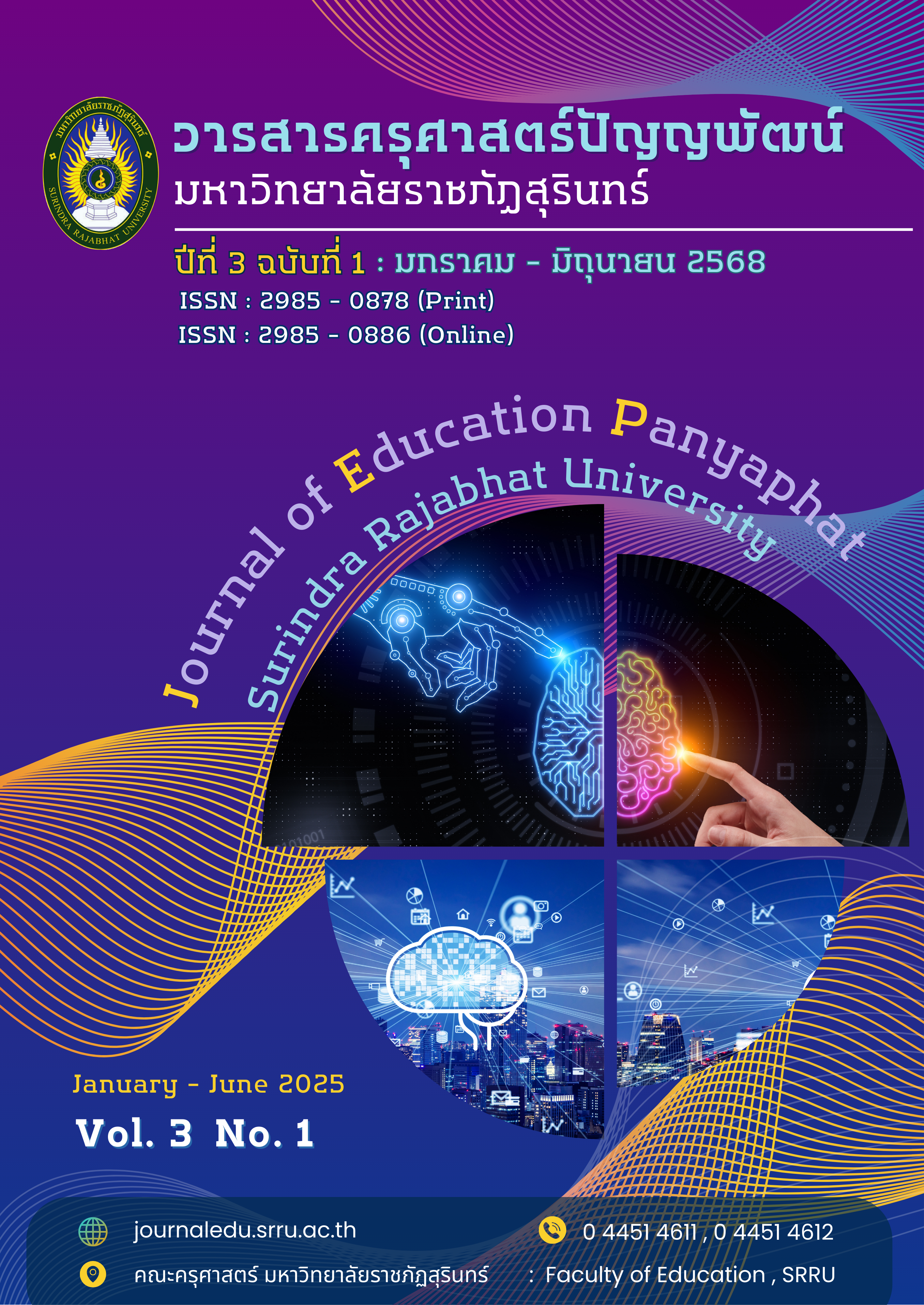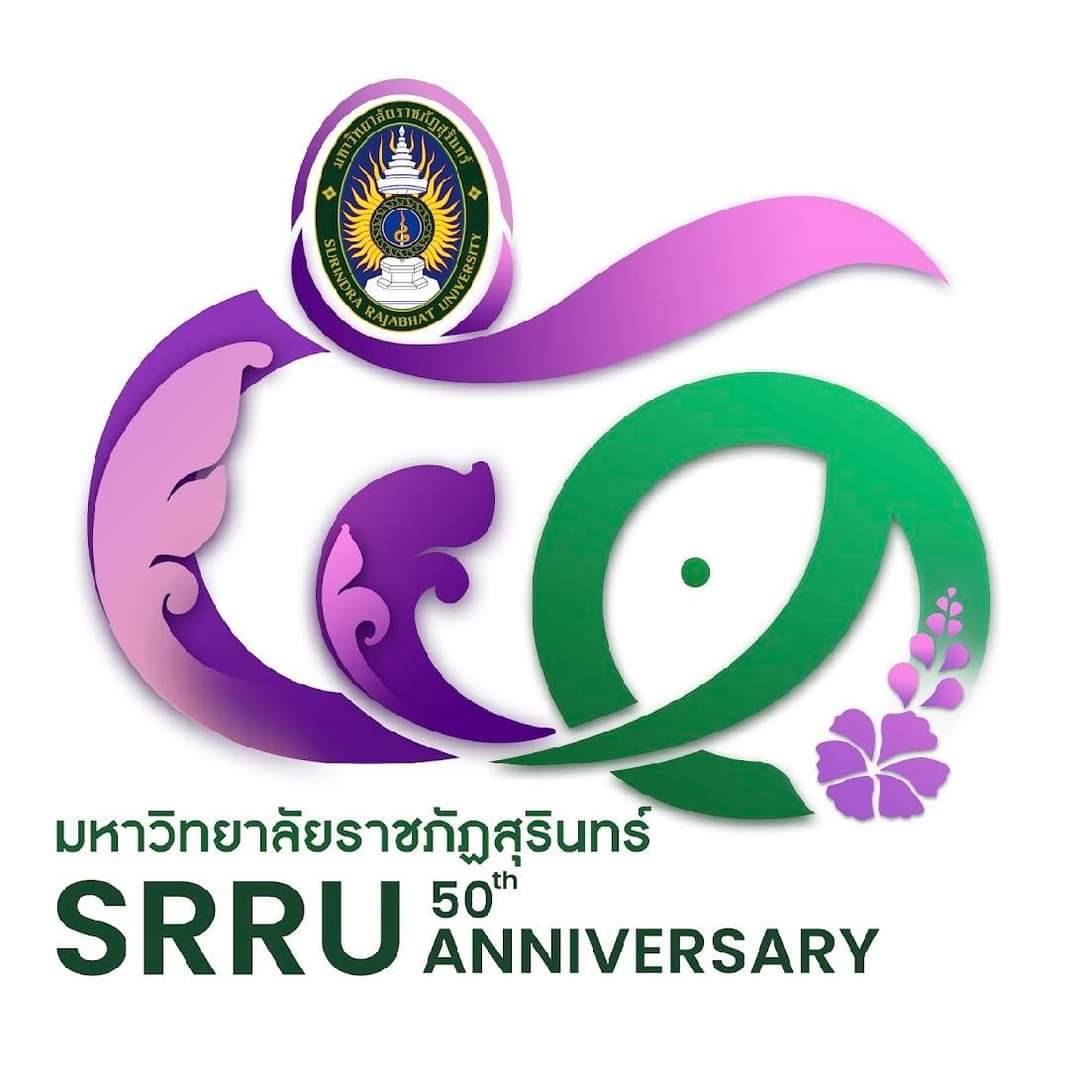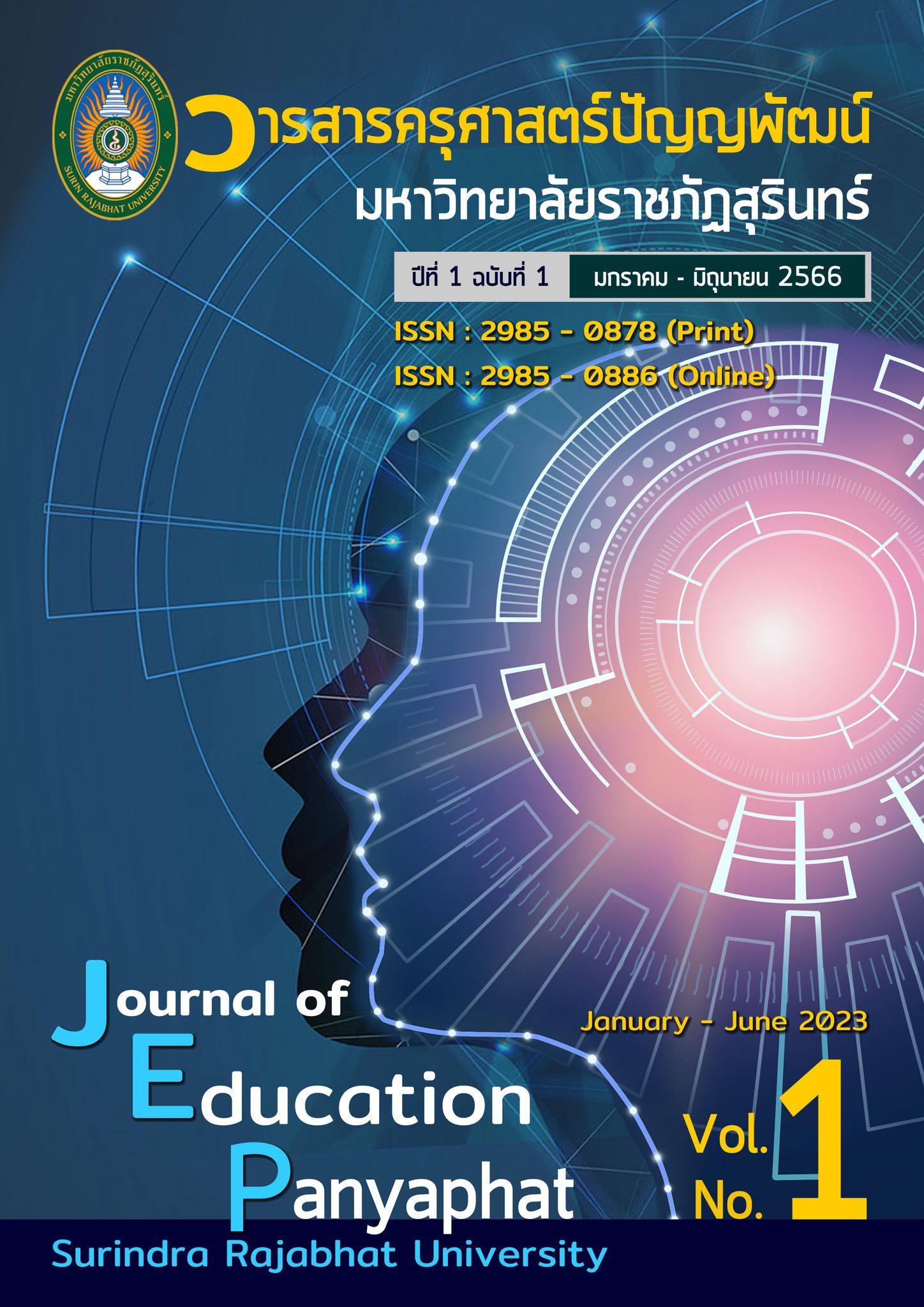Development of Educational Games to Enhance Spatial Abilities of First Grade Elementary School Students
DOI:
https://doi.org/10.65205/jedusrru.2025.4248Keywords:
Spatial Abilities, Game Development, Educational GameAbstract
This research aimed to 1) develop educational games to enhance the spatial abilities of first-grade students, 2) compare the spatial abilities of students before and after learning through educational games, and 3) examine the satisfaction of first-grade students with the learning process utilizing these educational games. The sample consisted of 22 first-grade students at Sarasas Witaed Bangbon School during the first semester of the 2023 academic year, selected through simple random sampling. The research instruments included 1) educational games, 2) lesson plans, 3) a spatial ability test, and 4) a satisfaction questionnaire. The data were analyzed using percentage, mean, standard deviation, and t-test statistics.
The findings revealed that 1) the developed educational games consisted of five types: grouping geometric shapes, separating geometric shapes, assembling geometric shapes, reflecting geometric shapes, and rotating geometric shapes and the learning process using these games demonstrated a process and outcome efficiency (E1/E2) of 72.27/74.70, which exceeded the predetermined criteria, 2) students' spatial abilities after learning through the educational games were significantly higher than before learning at the .05 level of significance and 3) overall, students' satisfaction with the learning process utilizing educational games was rated at a high level.
References
กนิษฐา หลักฐาน เจษฎา เทพศร และประสิทธิ์ เขียวศรี. (2565). แนวทางการพัฒนาและส่งเสริมการจัดการเรียนรู้ในศตวรรษที่ 21 : กรณีศึกษาบริบทในพื้นที่สำนักงานศึกษาธิการภาค 8 (จังหวัดฉะเชิงเทรา จังหวัดชลบุรี และจังหวัดระยอง). สืบค้น มีนาคม 6, 2568, จาก https://reo8.moe.go.th/wp-content/uploads/2022/05/แนวทางการพัฒนาและส่งเสริมการจัดการเรียน.pdf
จุฑาทิพย์ หาญกุดตุ้ม สมภารธัชธรณ์ ศิโลศรีไช และสัญญา เคณาภูมิ. (2566). การจัดการเรียนรู้โดยใช้คำถามเป็นฐาน. วารสารราชภัฏสุรินทร์วิชาการ, 1(5), 67–82.
นัฐพร โอภาสานนท์. (2566). การพัฒนาเกมกระดานเพื่อวัดความสามารถของความจําปฏิบัติการด้านภาษาและการได้ยิน การมองเห็นและมิติสัมพันธ์ในเด็กและวัยรุ่น. วารสารสังคมศาสตร์, 19(2), 209–235.
ปฏิณยาภัทร สำเภาทอง ศิรประภา ไพรเสนา และธิดารัตน์ จันทะหิน. (2567). การจัดกิจกรรมเกมการศึกษามิติสัมพันธ์ชุด PICS ที่มีผลต่อการพัฒนาทักษะสมอง (EF) ของเด็กปฐมวัย. วารสารบริหารการศึกษาบัวบัณฑิต, 24(1), 1–15.
รพีพรรณ ชูเมือง และคณะ. (2565). การจัดกิจกรรมการเรียนรู้คณิตศาสตร์ตามแนวคิดเกมมิฟิเคชันผ่านห้องเรียนออนไลน์ เรื่อง มิติสัมพันธ์ของรูปเรขาคณิตของนักเรียนชั้นมัธยมศึกษาปีที่ 1 โรงเรียนสระหลวงพิทยาคม. วารสารวิชาการมหาวิทยาลัยราชภัฏเพชรบุรี, 12(3), 93–103.
อุบล ผลจันทน์ สุจรรยา สมบัติธีระ และรัตนจินต์ จิตตานุภาพ. (2566). การจัดกิจกรรมเกมการศึกษาเพื่อพัฒนาทักษะทางคณิตศาสตร์สำหรับเด็กปฐมวัยอายุ 3–4 ปี. วารสาร มจร อุบลปริทรรศน์, 8(3), 1543–1550.
เอกสิทธิ์ ชนินทรภูมิ. (2559). การศึกษาแนวทางการจัดการเรียนรู้ตามแนวการสร้างความรู้ใหม่โดยใช้เกมการศึกษา. วารสารศึกษาศาสตร์ มหาวิทยาลัยศิลปากร, 14(1), 54–59.
Gardner, H. (1993). Multiple Intelligences: The Theory in Practice. New York: Harper Collins.
Gardner, H. (2011). Frames of Mind : The Theory of Multiple Intelligences (3rd ed.). New York: Basic Books.
Gergelitsova, S. & Holan, T. (2008). Development of Spatial Abilities by Means of Didactic Computer Games. Journal Biuletyn of Polish Society for Geometry and Engineering Graphics, 18(2008), 32–38.
Lin, C. H. & Chen, C. M. (2016). Developing Spatial Visualization and Mental Rotation with a Digital Puzzle Game at Primary School Level. Computers in Human Behavior, 57(2016), 23–30.
Mangelep et al. (2023). Optimization of Visual-spatial Abilities for Primary School Teachers through Indonesian Realistic Mathematics Education Workshop. Community Development Journal, 4(4), 7289–7297.
Saroinsong, W. P., Anggraeni, N., & Putri, I. M. (2021). How Does Domino Card Help Children to Insight Numbering. The Southeast Asian Journal of Early Childhood Care Education and Parenting, 2(1), 57–70.
Ung, P., Ngowtrakul, B., Chotpradit, R. & Thavornwong, N. (2016). Spatial Ability Test for Upper-Elementary School Student: Confirmatory Factor and Normative Data Analysis. Journal of the Association of Researchers, 21(2), 48–57.
Vygotsky, L. S. (1978). Mind in Society: The Development of Higher Psychological Processes. Massachusetts: Harvard University Press.
Downloads
Published
How to Cite
Issue
Section
License
Copyright (c) 2025 JOURNAL OF EDUCATION PANYAPHAT SURINDRA RAJABHAT UNIVERSITY

This work is licensed under a Creative Commons Attribution-NonCommercial-NoDerivatives 4.0 International License.
ข้อความลิขสิทธิ์










